Sydney, a vibrant metropolis pulsating with energy, iconic landmarks, and a ceaseless influx of tourists and business travelers, is undoubtedly a prime destination for the hospitality industry. However, this very popularity has cultivated a highly competitive and, at times, oversaturated hotel market. From boutique stays to luxury resorts and budget-friendly accommodations, the options are seemingly endless for visitors. This intense competition places immense pressure on individual hotels to not just survive, but to truly stand out and capture their fair share of bookings.
In this environment, merely having a good location or comfortable rooms is no longer enough. The modern traveler’s journey often begins online, long before they even consider packing a suitcase. Therefore, a robust and intelligent digital strategy, underpinned by cutting-edge SEO (Search Engine Optimization) and holistic digital marketing, is paramount. This comprehensive guide will delve into the challenges faced by Sydney hotels in this saturated landscape and, more importantly, equip you with actionable insights and strategies to differentiate your property, enhance your online visibility, and consistently secure direct bookings, turning casual browsers into loyal guests.
Understanding the Sydney Hotel Landscape: More Than Just Iconic Views
Sydney’s appeal is undeniable. The Opera House, Harbour Bridge, stunning beaches, vibrant culinary scene, and a packed calendar of events all contribute to its allure. This constant demand naturally attracts a high concentration of hotels. The sheer volume of choices means that potential guests are faced with decision fatigue. They’re scrolling through endless lists on Online Travel Agencies (OTAs) like Booking.com, Expedia, and Agoda, often defaulting to the most prominent or cheapest options.
The challenge isn’t just about being seen; it’s about being chosen. Hotels need to answer the fundamental question: “Why should a traveler book my hotel over the hundreds of others?” This requires a multi-faceted approach that goes beyond traditional advertising and delves deep into understanding the online traveler’s behavior, leveraging digital channels to tell a compelling story, and optimizing every touchpoint of their online journey.
The Power of SEO: Your Hotel’s Digital Front Door
In a crowded market, your website is your digital front door. But for that door to be opened, people first need to find it. This is where SEO becomes your most potent weapon. SEO is not just about keywords; it’s about making your website discoverable, authoritative, and user-friendly for both search engines and human visitors.
1. Comprehensive Keyword Research: Unearthing Traveler Intent
Beyond generic terms like “hotels in Sydney,” a sophisticated SEO strategy begins with meticulous keyword research. For a saturated market like Sydney, this means:
- Long-Tail Keywords: Target highly specific phrases that indicate strong booking intent. Examples include “boutique hotel Circular Quay with harbor views,” “pet-friendly accommodation Sydney CBD,” “family hotels near Taronga Zoo Sydney with pool,” or “luxury hotels Sydney for couples with spa.” These keywords have lower search volume but higher conversion rates.
- Local SEO Keywords: Optimize for hyper-local searches. “Hotels near Darling Harbour,” “accommodation The Rocks Sydney,” or “apartments Bondi Beach” are crucial. Ensure your Google Business Profile (formerly Google My Business) is meticulously updated and optimized with accurate information, photos, and regular posts.
- Amenity-Specific Keywords: If your hotel boasts unique features, highlight them. “Sydney hotel with rooftop bar,” “hotels in Sydney with heated indoor pool,” or “conference facilities Sydney CBD hotel.”
- Experiential Keywords: Connect with the desire for unique experiences. “Romantic getaways Sydney hotels,” “wellness retreats Sydney,” or “culinary experiences Sydney hotels.”
- Competitor Analysis: Identify what keywords your direct and indirect competitors are ranking for. This can reveal gaps in your own strategy and opportunities to outrank them. Tools like Semrush or Ahrefs are invaluable here.
2. On-Page SEO: Crafting a Compelling Digital Narrative
Once you have your keywords, integrate them naturally into your website’s content.
- H1 (Heading 1): As specified in our title, this is the most important on-page heading and should clearly state the page’s main topic and include your primary keyword. For this article, “Sydney Hotels Under Pressure: How to Stand Out in a Saturated Market” serves as the H1. For your hotel’s key pages, think about what directly answers a user’s primary search query.
- Meta Description: This concise summary (approx. 150-160 characters) appears under your title in search results. It’s your hotel’s elevator pitch, designed to entice clicks. Include compelling language, your key selling points, a strong call to action, and relevant keywords.
- Example: “Experience unparalleled luxury at [Your Hotel Name] in Sydney’s vibrant CBD. Discover stunning harbor views, award-winning dining, and exclusive spa services. Book direct for the best rates!”
- Example: “Experience unparalleled luxury at [Your Hotel Name] in Sydney’s vibrant CBD. Discover stunning harbor views, award-winning dining, and exclusive spa services. Book direct for the best rates!”
- Page Titles (Meta Titles): Crucial for SEO, these appear in browser tabs and search results. Keep them concise (50-60 characters), include your primary keyword, and your hotel name.
- High-Quality Content: This is the bedrock of effective SEO. Every page on your website, from room descriptions to amenity pages and blog posts, needs to be well-written, informative, and engaging.
- Room Descriptions: Go beyond basic features. Describe the experience of staying in each room type. Use vivid language and highlight unique aspects.
- Amenity Pages: Dedicate individual pages to your spa, restaurant, pool, or conference facilities, optimizing each with relevant keywords.
- Blog Content: This is where you shine as a local expert. Create articles like “Top 10 Hidden Gems Near [Your Hotel Name],” “A Foodie’s Guide to [Your Neighborhood] in Sydney,” or “Planning the Perfect Family Holiday in Sydney.” This positions your hotel as a valuable resource, attracting informational searches that can lead to bookings.
- Room Descriptions: Go beyond basic features. Describe the experience of staying in each room type. Use vivid language and highlight unique aspects.
- Image Optimization: Compress images for faster loading times and use descriptive alt text that includes keywords. This helps search engines understand the image content and improves accessibility.
- Internal Linking: Strategically link between relevant pages on your website. This helps search engines understand your site’s structure and passes “link equity” between pages. For example, from a blog post about Sydney attractions, link directly to your “Book Now” page or a relevant room type.
- URL Structure: Keep your URLs clean, concise, and keyword-rich. yourhotel.com.au/sydney-luxury-boutique-hotel is better than yourhotel.com.au/pageID=123.
3. Technical SEO: The Unseen Foundation
Even the most brilliant content won’t rank if your website has technical issues.
- Mobile-Friendliness: With most travelers researching on their phones, a responsive, fast-loading mobile site is non-negotiable. Google prioritizes mobile-first indexing.
- Page Speed: Slow websites deter users and hurt rankings. Optimize images, leverage browser caching, and consider a Content Delivery Network (CDN).
- Sitemap & Robots.txt: Ensure search engines can easily crawl and index your site (sitemap) and that you’re guiding them on what not to crawl (robots.txt).
- Schema Markup (Structured Data): This is incredibly powerful for hotels. Implement schema markup for hotel properties, reviews, ratings, addresses, pricing, and amenities. This allows your search listing to display “rich snippets” like star ratings and prices directly in the SERPs, making your listing stand out dramatically.
- HTTPS: Secure your website with an SSL certificate. This is a ranking factor and builds trust with users.
Beyond SEO: A Holistic Digital Marketing Approach
While SEO lays the groundwork, a truly effective strategy in a saturated market requires integrating other digital marketing channels.
1. Local SEO & Google Business Profile (GBP): Dominating Local Searches
For hotels, local SEO is paramount. When someone searches “hotels near me” or “hotels in Sydney CBD,” your GBP listing is often the first thing they see.
- Complete and Accurate Profile: Fill out every section of your GBP profile: name, address, phone number, website, hours, services, photos, and a detailed description.
- High-Quality Photos: Showcase your best rooms, amenities, and common areas. Virtual tours are a huge plus.
- Customer Reviews: Actively encourage guests to leave reviews on Google, TripAdvisor, and other platforms. Respond promptly and professionally to all reviews, positive and negative. Reviews are a major ranking factor and trust signal.
- GBP Posts: Use GBP posts to announce special offers, events, or updates.
- Local Citations: Ensure your hotel’s name, address, and phone number (NAP) are consistent across all online directories and listing sites.
2. Content Marketing: Becoming a Sydney Expert
As mentioned under on-page SEO, a robust blog or content hub is vital.
- City Guides: Create in-depth guides to Sydney’s neighborhoods, attractions, and hidden gems.
- Event Calendars: Highlight major events in Sydney and how your hotel can cater to attendees.
- Themed Content: Develop content around specific travel interests (e.g., “Sydney for Foodies,” “Family Adventures in Sydney,” “Romantic Escapes”).
- Visual Content: Incorporate high-quality photos and videos. Video tours of rooms, amenities, and local areas can be highly engaging.
3. Social Media Marketing: Building Community and Brand Loyalty
While social media doesn’t directly impact SEO rankings, it drives traffic, builds brand awareness, and fosters community, all of which indirectly support your digital presence.
- Platform Selection: Focus on platforms where your target audience is most active (e.g., Instagram for visuals, Facebook for community engagement, Pinterest for travel inspiration, TikTok for short, engaging videos).
- Engaging Content: Share stunning visuals of your hotel and Sydney, behind-the-scenes glimpses, guest testimonials, and interactive polls.
- User-Generated Content (UGC): Encourage guests to share their experiences using a unique hashtag. Reposting UGC builds authenticity and social proof.
- Targeted Ads: Use social media advertising to reach specific demographics and interests with compelling offers.
4. Email Marketing: Nurturing Leads and Driving Repeat Business
Build an email list through website sign-ups, booking processes, and in-person interactions.
- Personalized Offers: Send exclusive deals and promotions to subscribers.
- Pre-Arrival and Post-Stay Communications: Enhance the guest experience with useful information before arrival and follow-up surveys/offers after departure.
- Segment Your Audience: Tailor emails based on past booking behavior, preferences, or demographics.
5. Online Reputation Management (ORM): The Ultimate Trust Signal
In a saturated market, trust is currency. Positive online reviews and prompt, professional responses are crucial.
- Monitor Review Sites: Regularly check platforms like TripAdvisor, Google, Yelp, and OTA review sections.
- Respond to All Reviews: Thank guests for positive reviews and address negative feedback constructively and empathetically. Show that you value guest input and are committed to improvement.
- Leverage Positive Reviews: Showcase testimonials on your website and social media.
6. Direct Booking Optimization: Bypassing the OTAs
While OTAs provide visibility, direct bookings are more profitable. Optimize your website’s booking engine for a seamless user experience.
- Best Price Guarantee: Offer a clear incentive to book direct.
- Exclusive Perks: Provide added value for direct bookings (e.g., complimentary breakfast, late checkout, room upgrades).
- Clear Call-to-Actions: Make the “Book Now” button prominent and easily accessible on every page.
- Streamlined Booking Process: A simple, intuitive booking flow minimizes abandonment rates.
Measuring Success and Adapting to Change
SEO and digital marketing are not one-time tasks; they are ongoing processes that require continuous monitoring and adaptation.
- Google Analytics: Track website traffic, user behavior, conversion rates, and the source of your bookings.
- Google Search Console: Monitor your website’s performance in Google search results, identify technical issues, and see which keywords are driving impressions and clicks.
- Rank Tracking Tools: Keep an eye on your keyword rankings and competitor performance.
- A/B Testing: Continuously test different headlines, calls to action, and page layouts to optimize for conversions.
- Stay Updated: The digital landscape and Google’s algorithms are constantly evolving. Regularly research and adapt to new trends and best practices.
Your Hotel’s Path to Digital Dominance in Sydney
The Sydney hotel market may be saturated, but it’s far from insurmountable. By adopting a strategic, data-driven approach to SEO and digital marketing, your hotel can carve out a unique identity, attract its ideal guests, and secure a dominant position in the online landscape. It’s about more than just being present; it’s about being preferred.
Don’t let the pressure of competition define your hotel’s destiny. Embrace the power of digital, and let your unique story shine through.
Contact us at Digisap, and let’s design together an SEO and digital marketing strategy so your hotel is the first choice, and guests book with you, not the competition.
Click here to schedule your free consultation and take your hotel to the next level





